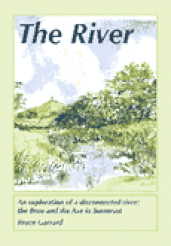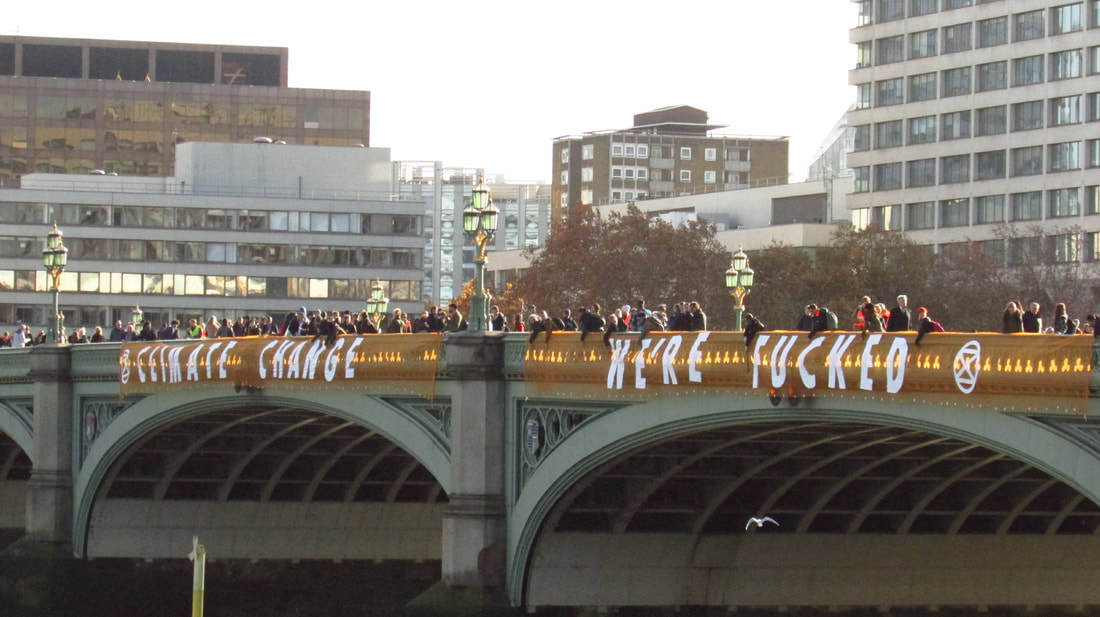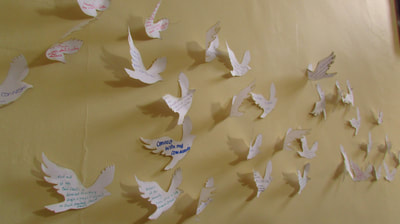|
I went on the Extinction Rebellion training day and then to London for the day of action on Wednesday 14th November 2018 for these reasons:
1: since watching the Battle of the Newbury Bypass documentary, direct action has intrigued me, and I wanted to experience it for myself. I felt curiosity. 2: I. tells me that there is a moment that happens when people do something ‘naughty’ that they wouldn’t normally do, when they enter another world beyond the current system. A moment of liberation. I wondered if I would experience that, or witness someone else experience it. 3: Extinction rebellion are there to remind the government of promises made at the 2015 Paris Agreement about cutting carbon emissions due to increasing concern about climate change, and encouraging them to move the date forward, declaring a Climate Emergency, after the UN IPCC report stating ‘we’ve got 12 years to turn this around’. I could not look my child in the eye in years to come and say ‘I knew this was coming, and did nothing’. I made a conscious decision to follow XR because they are a hugely visible group in this country doing something about it, getting the attention of public and government by being arrested for non-violent direct action. I decided to follow their lead in whatever they were doing on this day, not to question out loud, but to feel how I reacted to everything. My experiment had intriguing consequences: I loved the day, but became ill afterwards, and went through an intense grieving process.
0 Comments
 Bruce Garrard is an activist, the writer of five books, and the creator of Unique Publications. His book The River, about the River Brue in Somerset, inspired me when I was recently doing research on the Somerset Levels. His inspiration comes from the movie Aluna, about the Kogi people of Columbia, who say, ‘whatever you do, look after your rivers!’ They would take objects from one place, to another place, to connect land and waters. So Bruce realised that what he needed to do was to take shells from the mouth of the river Brue, which he calls ‘the disconnected river’, to the source. |
Categories |


 RSS Feed
RSS Feed